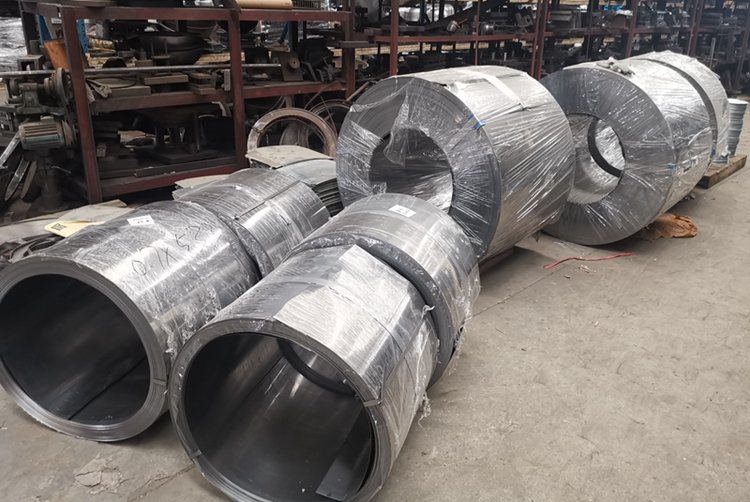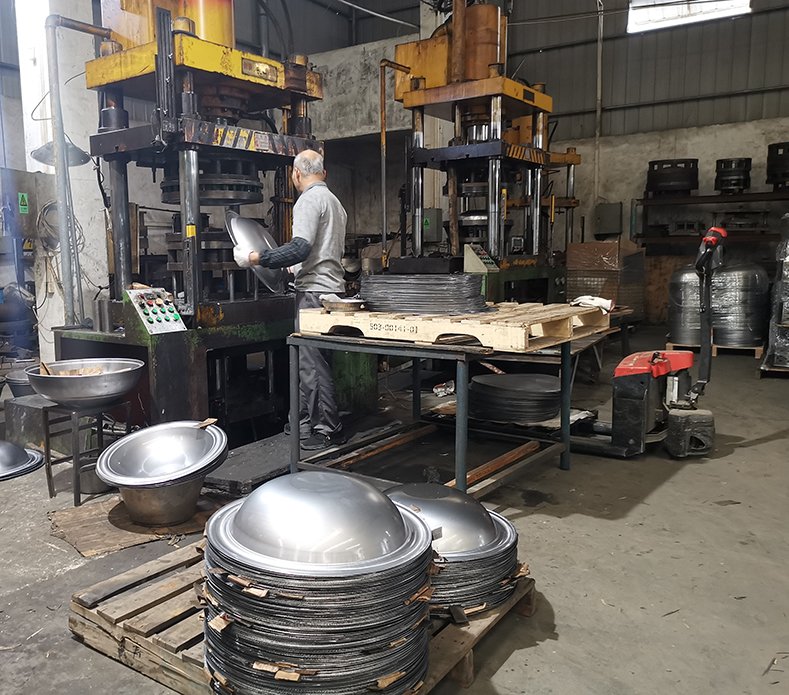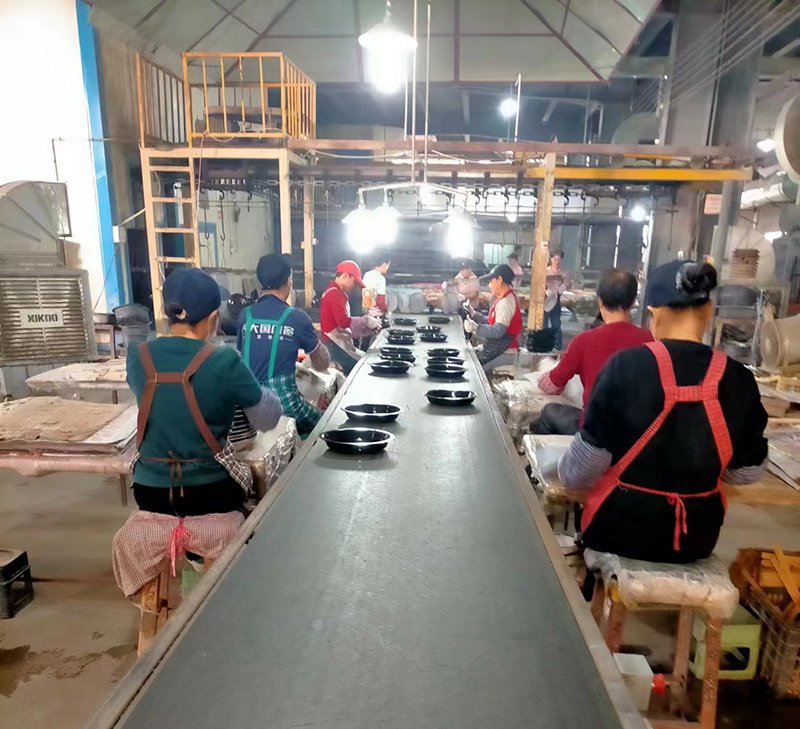II. Composition of Porcelain Enamel
III. Benefits of Porcelain Enamel on Barbecue Grills
IV. How to Maintain Porcelain Enamel
V. Common Misconceptions about Porcelain Enamel
VI. Porcelain Enamel vs. Other Grill Coatings
VII. Tips for Choosing the Right Porcelain Enamel Grill
VIII. User Reviews and Experiences
IX. Frequently Asked Questions (FAQs)
What is Porcelain Enamel on the Barbecue Grill?
Porcelain enamel has become synonymous with durability and style, especially when it comes to barbecue grills. In the world of outdoor cooking, the term "porcelain enamel" often surfaces, leaving many grill enthusiasts intrigued. Let's delve into the specifics to uncover what makes porcelain enamel the go-to choice for barbecue aficionados.
A. Definition of Porcelain Enamel
To begin with, porcelain enamel is a type of coating applied to metal surfaces, it can make sure the metal material resistant to oxidation and corrosion, especially on barbecue grills. It belongs to the inorganic nonmetallic material, it is one kind of compound materials, which was coated on the metal surface and burned under high temperature. This results in a smooth, shiny surface that not only enhances the aesthetics of the grill but also provides several functional advantages.

B. The Popularity of Porcelain Enamel on Barbecue Grills
The surge in the popularity of porcelain enamel-coated grills is not without reason. As we explore its composition and benefits, it becomes evident why many barbecue enthusiasts swear by this material.
It has two main components: metal materials for coating enamel on the surfaces and enamel glaze (inorganic glassy materials).
A. Base Materials
The composition of porcelain enamel involves a blend of materials, mainly including three categories mineral raw materials, chemical raw materials and pigment raw materials. This amalgamation creates a robust coating that can withstand the rigors of outdoor cooking. The choice of these materials contributes to the durability and heat-retaining properties of porcelain enamel.
B. Base Metal Material for porcelain enamel
There are base mainly metal material including steel, cast iron, aluminum, stainless steel and copper material. Generally, charcoal grill use carbon steel to do lid and bowl. Then applied porcelain enameled coating on it and baked them in a kiln at 800 degrees. And some of cooking grid make porcelain-enamel finish.

A lot of round barbecue grill make by stretching, the raw material after stretching will be thin, but it will become thicker after enamel. for example, the raw material thickness is 1.0mm, after stretching become about 0.9mm, then coated porcelain enamel become 1.0mm. it should be noted that most of grill enamel in black color. But the raw material must be more than 0.8mm if you want to do other colors.

Our factory can be custom color finishes according to your specific requirements if you want to diversify product line. Contact us our sales team.
C. Manufacturing Process
Understanding how porcelain enamel is manufactured sheds light on its quality. The process is based on producing ground glaze and surface glaze in difference, spraying glaze twice or multiple and high-temperature firing. The high-temperature firing not only bonds the enamel to the metal but also ensures a consistent and adhesiveness coating.

In the traditional multi-coating method, a base glaze is first applied to the pre-stamped grill lid and bowl or cast metal product, followed by the application of surface glaze after firing (once or multiple times). After that, firing it under high temperature again. The base glaze serves as a transitional layer that binds with the metal surface, exhibiting strong adhesion. The surface glaze is then applied on top of the base glaze, covering the base color and imparting a smooth and aesthetically pleasing surface to the product, along with a range of excellent physical and chemical properties.

A. Durability
One of the primary advantages of choosing porcelain enamel for your barbecue grill is its exceptional durability. This coating acts as a shield, protecting the underlying metal from rust, corrosion, and other environmental factors. This durability ensures a longer lifespan for your grill, even when exposed to the outdoor.
B. Heat Retention
Porcelain enamel is celebrated for its ability to retain heat efficiently. This means that once your grill reaches the desired temperature, the porcelain enamel coating helps maintain a consistent heat level throughout the cooking process. This even distribution of heat is a game-changer for achieving perfectly grilled delicacies.
C. Easy to Clean
Maintaining a clean grill is essential for both hygiene and performance. Porcelain enamel makes this task easier by providing a non-stick surface. Food residues are less likely to adhere to the smooth enamel, allowing for hassle-free cleaning after each barbecue session.
IV. How to Maintain Porcelain Enamel
A. Cleaning Tips
To ensure the longevity of your porcelain enamel-coated grill, adopting proper cleaning practices is crucial. Use a soft brush or cloth to remove any residue, and avoid abrasive tools that might scratch the enamel surface.
B. Avoiding Scratches
While porcelain enamel is robust, it's not impervious to scratches. Exercise caution when using metal utensils or cleaning tools to prevent any inadvertent damage to the enamel coating.
V. Common Misconceptions about Porcelain Enamel
A. Fragility Myths
Despite its robust nature, there are common misconceptions about porcelain enamel being fragile. Understanding its composition and manufacturing process helps dispel such myths, emphasizing its durability.
B. Stain Resistance
Porcelain enamel's non-porous surface makes it resistant to stains, simplifying the cleaning process. Debunking the misconception that porcelain enamel is prone to discoloration or staining is essential for informed decision-making.
VI. Porcelain Enamel vs. Other Grill Coatings
A. Porcelain vs. Stainless Steel
Comparing porcelain enamel to stainless steel reveals distinct differences in terms of heat retention, durability, and maintenance. Each material has its merits, but understanding your preferences and requirements will guide your choice.
B. Porcelain vs. Cast Iron
Cast iron is another popular choice for grill surfaces. By weighing the pros and cons of porcelain enamel against cast iron, you can make an informed decision based on your cooking needs and lifestyle.
VII. Tips for Choosing the Right Porcelain Enamel Grill
A. Consideration of Cooking Style
Different grills cater to various cooking styles. Considering whether you prefer slow smoking, high-temperature searing, or versatile grilling helps narrow down your options when choosing a porcelain enamel-coated grill.
B. Budget-Friendly Options
While porcelain enamel grills offer numerous benefits, it's essential to explore budget-friendly options that align with your financial considerations. The market offers a range of choices catering to diverse budgets without compromising quality. Also, our factory provides a range of grills, you could contact us if you are interested in our grills.
VIII. User Reviews and Experiences
A. Positive Feedback
Exploring user reviews provides valuable insights into the real-world experiences of barbecue enthusiasts. Positive feedback often highlights the durability, performance, and ease of maintenance of porcelain enamel grills.
B. Potential Drawbacks
No product is without its drawbacks. Understanding potential issues, such as the risk of chipping or specific cleaning requirements, allows prospective buyers to make informed decisions.
IX. Frequently Asked Questions (FAQs)
A. How long does porcelain enamel last on a grill?
- Porcelain enamel, when properly maintained, can last for many years. Regular cleaning and avoiding abrasive tools contribute to its longevity.
B. Can I use abrasive cleaners on porcelain enamel grills?
- It's advisable to avoid abrasive cleaners, as they can scratch the enamel surface. Gentle cleaning with non-abrasive tools ensures the grill's longevity.
C. What temperatures can porcelain enamel withstand?
- Porcelain enamel can withstand high temperatures, making it suitable for various cooking methods, including searing and smoking.
D. Can I repair chipped porcelain enamel? - While it's challenging to repair chipped enamel, there are enamel repair kits available. However, prevention, such as avoiding impacts, is the best approach.
X. Conclusion
In conclusion, understanding what porcelain enamel brings to the barbecue grill is essential for making an informed purchase. Its durability, heat retention, and ease of maintenance make it a preferred choice for many outdoor cooking enthusiasts. By dispelling common myths, comparing it to other coatings, and considering user experiences, you can confidently choose the right porcelain enamel grill for your culinary adventures.
YEENE as an experienced charcoal grill manufacturer can help you custom any color enamel grill. Contact us now.